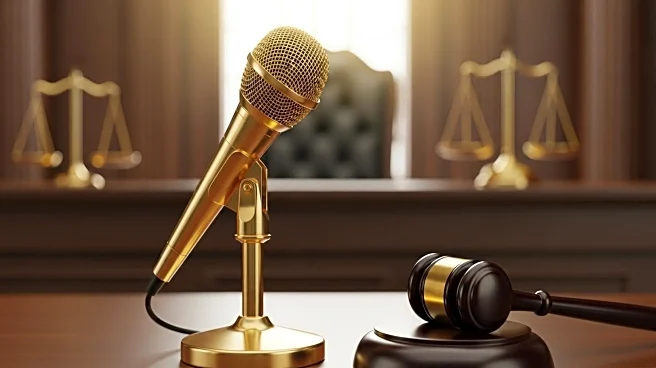What's Happening?
A federal judge in New York has dismissed the defamation case filed by rapper Drake against his record label, Universal Music Group (UMG). The case originated from a rap battle between Drake and fellow artist Kendrick Lamar, during which Drake alleged that UMG had defamed him. The judge ruled that the claims did not meet the legal standards for defamation, leading to the dismissal of the case. This legal battle highlights the ongoing tensions and disputes within the music industry, particularly between artists and their record labels.
Why It's Important?
The dismissal of Drake's defamation case against UMG is significant for the music industry, as it underscores the challenges artists face when dealing with record labels. Defamation cases can impact an artist's reputation and career, and the outcome of this case may influence how similar disputes are handled in the future. For UMG, the dismissal avoids potential legal and financial repercussions, allowing the label to focus on its business operations without the distraction of a high-profile lawsuit. This decision may also set a precedent for other artists considering legal action against their labels.
What's Next?
With the case dismissed, Drake may choose to pursue other legal avenues or focus on his music career. The decision could lead to discussions within the industry about the relationship between artists and record labels, potentially prompting changes in contract negotiations and dispute resolution processes. Stakeholders in the music industry, including artists, labels, and legal experts, may analyze the implications of this case to better understand the legal boundaries of defamation claims in the context of artistic expression.
Beyond the Headlines
The case highlights broader issues of artistic freedom and the balance of power between artists and record labels. It raises questions about how defamation is defined in the context of creative expression and the extent to which artists can challenge their labels legally. This could lead to a reevaluation of industry practices and the development of more equitable agreements that protect artists' rights while allowing labels to manage their business interests effectively.









